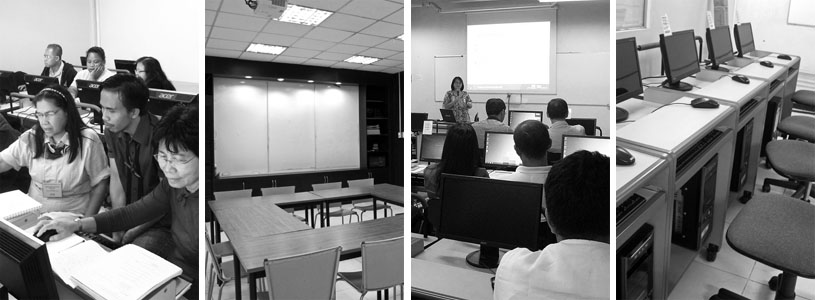
Aside from offering two postgraduate degrees, the UP Population Institute, through its faculty and research instrumentalities, does a variety of extension services including chairmanship or membership in population and demography-related bodies and conducts training for various organizations, local and abroad in Demography, statistical analysis and survey and research methods.
The UPPI is a member of various Interagency Committees of the Philippine Statistics Authority while individual faculty belong to several technical working groups in the PSA. At the Commission on Population, the UPPI Director sits as a member of the Board of Commissioners of the Commission on Population. Faculty also serve in a number of advisory boards at the Department of Health and the UN Population Fund (UNFPA).
The UPPI belongs to a number of academic organizations like the Philippine Population Association (PPA) and is an associate member of the Philippine Social Science Council (PSSC). At the University of the Philippines, faculty sit on various committees at the college and university levels.
Training sessions have been conducted for a host of offices in government and private organizations from here and abroad with foreign trainees usually coming from developing countries in Asia.
-
Training on Data Analysis using SPSS (Beginner's Course)
The course provides an intensive introduction to the Statistical Package for the Social Sciences (SPSS), now known as IBM SPSS Statistics. SPSS is a user-friendly statistical software and a powerful and versatile tool for data analysis.
The course will utilize a survey dataset to cover the following topics: preparation of data for analysis, variable transformation, data manipulation, generation of frequency distributions, summary statistics, crosstabulations and statistical graphs. The course will also provide an introduction to multivariate analysis.
Requirement: Must have knowledge of basic statistical concepts and have experience in computer operations using MS Windows
-
Training on Advanced Statistical Analysis
The course will cover the following advanced statistical techniques in quantitative data analysis: Binary and Multinomial Logistic Regression, Multiple Classification Analysis (MCA), Multivariate Analysis of Variance (MANOVA), Factor Analysis, Item Analysis and Reliability Analysis.
The course will tackle situations when each method may be applied, the assumptions needed, how to set up the analysis using statistical packages, and how to interpret the results. Data manipulation techniques such as handling of multiple response variables will also be discussed. SPSS will be used as the primary statistical software in addition to STATA and MS Excel.
Requirement: Must have understanding of basic statistical concepts and basic SPSS background
-
Course on Survey Research Methods and Data Processing
This course covers topics such as research design, survey methods, data processing, and data analysis. Training can be customized to fit the needs of the participants.
-
Information Technology (IT) in Demographic Data Appreciation for LGUs
Training of municipal development officers or local executives and their technical assistants about demographic data appreciation at the LGUs; covering basic demographic concepts and measures.
Share
